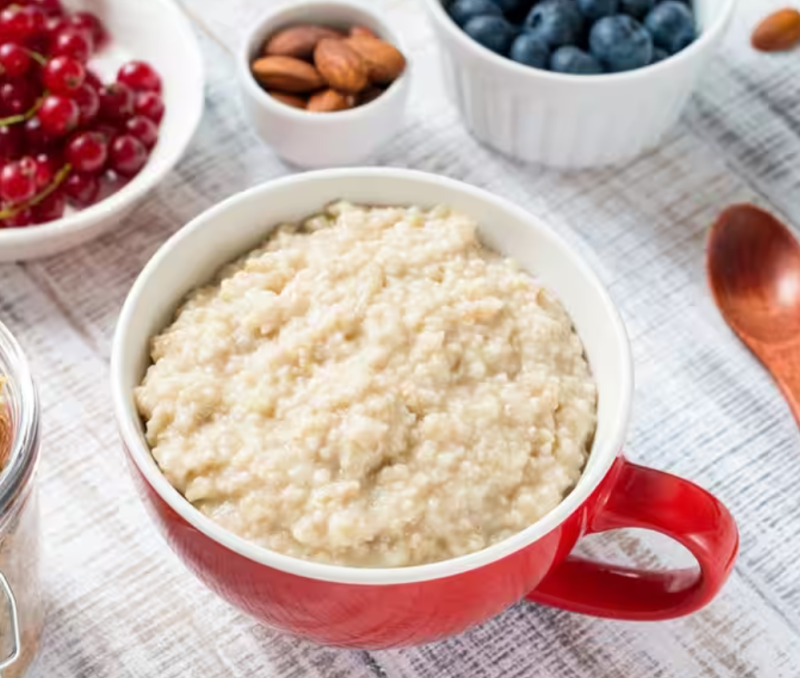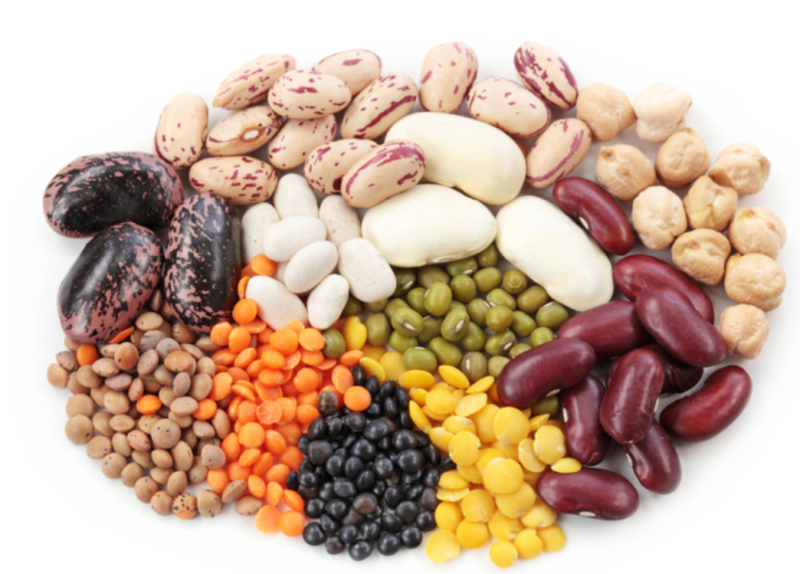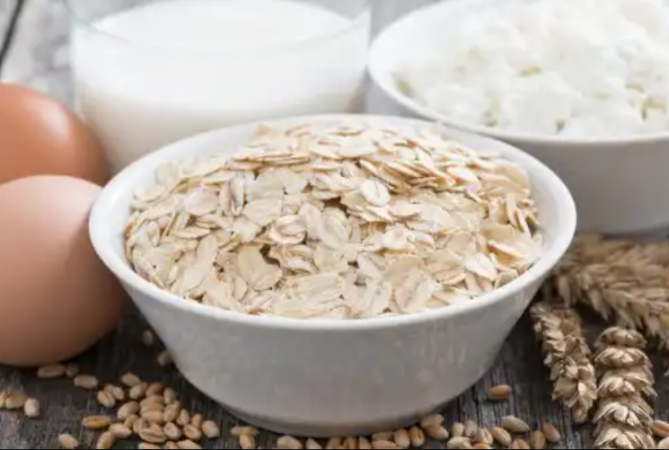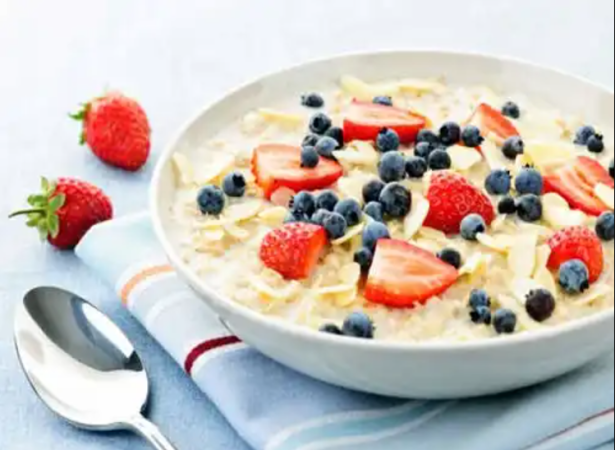
Little known by some sectors of the population, the possible benefits of consuming oats regularly have consolidated this cereal grain among the preferred foods for a healthy diet.
Due to its high nutritional value and the presence of multiple substances with biological activity, it can positively impact some aspects of well-being.
Next, we learn more about its properties and discover ideas to integrate it into the daily diet.
Contents
Oats, a very nutritious cereal
Oats ( Avena sativa ) is a cereal grown for its edible seed. This has been consumed since ancient times, and today, it is produced, above all, in America and northern Europe.
Like most grains, the United States Department of Agriculture (USDA) highlights its carbohydrate content. For this reason, it is considered an energy food. It also contains an exciting amount of protein, fiber, and various micronutrients (vitamins and minerals).
The most common is to consume in flakes, flour, or whole grain. You can also find by-products made from the market, such as oatmeal drinks and bran.
However, it is essential to know that the nutritional contribution and the use that the body makes of it depend on the type of oats. To give just one example, and as Harvard TH Chan reminds us, less processed oats (granulated or steel cut) take longer to digest, translating into a lower glycemic index than processed ones (like an instant, for example).
Although it is not one of the most consumed cereals worldwide, in recent years, it has become more common in the diet of many people. This has been thanks to the knowledge about its nutritional contribution and possible health benefits.
11 benefits of consuming oats every day
Introducing oats regularly into the diet has some strong points. In addition, thanks to its nutrients, it can affect some aspects of health. Of course, its intake must be framed within a balanced diet, one in which not only other cereals participate but also fruits, vegetables, legumes, meats, dairy products, and others.
1. Contributes to fiber intake

Oats contain a good proportion of fiber, somewhat higher than other commonly consumed grains, such as rice, wheat, or corn.
For this reason, including it in the diet is a way to ensure that the recommended amounts of this nutrient are met. It must be considered that the total daily intake is usually low in a large part of the population.
According to data obtained so far, people whose diets incorporate more of it seem to have a lower risk of specific health problems:
- Hypertension.
- Coronary heart disease and stroke.
- Obesity.
- Some gastrointestinal pathologies.
- Diabetes.
To mention just one example, in the United States, the FDA endorses, under specific requirements, the use of claims on food labels that describe a reduced risk of heart complications due to the consumption of soluble fiber from oats.
2. It can help control blood sugar
As we have just observed, fiber is a favorable dietary compound for preventing diabetes and contributing to its management when it already occurs.
The Centers for Disease Control and Prevention (CDC) reminds us that because fiber is not digested or absorbed, it does not cause a sudden spike in blood sugar. This is something that other types of carbohydrates do.
In the same way, the data obtained from a review of studies suggest that oat intake positively affects blood glucose and lipid levels in patients with type 2 diabetes.
Beta-glucans (a type of fiber in this and other cereals) are responsible for this action. Also, the positive effects are increased when small doses are taken long-term.
3. It can improve digestive and intestinal problems
These outstanding benefits of oats for the body are related to the presence of fiber. Both the soluble and insoluble types stand out in this cereal, although the first is more abundant.
Fiber contributes to the movement of the fecal bolus through the intestine. In addition, it increases the volume of feces. For both reasons, it can be a helpful food to improve constipation.
Data from human and animal studies suggest that oats are a positive food for gastrointestinal health. This review measured markers such as stool volume, intestinal pH, or the microbiota’s state.
4. Increases satiety

One of the properties of soluble fiber is to increase the viscosity of the intestinal content. This effect allows for an early feeling of satiety and greater fullness after eating.
Due to these actions, oats are a food that can help reduce total caloric intake throughout the day and facilitate adherence to diets with a lower energy intake.
This is deduced from multiple data, such as those published in the Journal of the American College of Nutrition. Notably, the positive effects were more significant in people who ate porridge than breakfast cereals made with oats.
5. Protects cardiovascular health
The different properties of oats make it a heart-healthy food.
As the American Heart Association pointed out, among the main effects are helping to control body weight and reduce cholesterol levels.
Oat beta-glucans are the nutrient shown to have the most weight in these results. But other phytochemicals with antioxidant and anti-inflammatory capacity also benefit the cardiovascular system.
In addition, oats are a positive food in the diet of people who have already suffered pathology and coronary intervention. According to the data obtained from a 2019 trial, the presence of oat fiber in the diet of these patients was related to:
- Lower triglycerides and cholesterol.
- Reduced inflammatory markers.
- More negligible risk of suffering a new adverse cardiovascular event.
6. It provides absorbing nutrients in the diet
Oats have a well-balanced nutritional composition. It is a source of quality carbohydrates and proteins with a good balance of amino acids.
In addition, it contains a high percentage of lipids (compared to other similar grains). Especially those of the unsaturated type. Its contribution is completed with vitamins and minerals.
In this way, oats are a food that provides energy but also helps to cover the necessary nutritional contributions throughout the day.
7. Provides Antioxidants
Beyond these cited nutrients, oats contain other elements with non-nutritive activity. In recent years, these have been studied for their possible positive effects on health.
One of these is avenanthramides, a unique compound in this cereal. Together with tocopherols and flavonoids, they give it excellent antioxidant capacity.
Thus, reducing the harmful action of free radicals in the body is possible. This has been linked to the appearance of some chronic diseases and premature aging.
8. Replace sugary cereals
 When taken in the morning, rolled oats are a perfect option to replace regular breakfast cereals. In many cases, the latter contain high sugar and are made with refined flour.
When taken in the morning, rolled oats are a perfect option to replace regular breakfast cereals. In many cases, the latter contain high sugar and are made with refined flour.
9. It represents a good source of energy
With the presence of slowly absorbed carbohydrates, one of the prominent benefits of oats is long-lasting energy.
For this reason, it is a very suitable breakfast food to eat throughout the day during the growth period (children) or more intense activity.
10. It has a prebiotic effect
Fiber is an element that cannot be digested. In this way, it passes intact through the digestive tract and reaches the colon. Intestinal bacteria can ferment it, producing, in turn, beneficial effects on the body.
Although more research is required in this regard, the scientific data obtained so far suggest that it is suitable for:
- Increase the presence of positive bacteria such as Lactobacilli and Bifidobacteria.
- Reduce the concentration of pathogenic microorganisms.
- Enhance the synthesis of metabolites that are positive for health.
- Improve the state of the immune system.
- Promote the integrity of the intestinal barrier.
11. Provides benefits for the skin
Beyond the benefits of consuming oats, they can also be an ally when used topically. Much more beautiful skin and hair can be achieved as it has a soothing and moisturizing effect.
In addition, it presents antioxidant and anti-inflammatory activities, which can provide dermatological benefits.
Ways to consume oats
There are many different possibilities when introducing oats into the diet. It is best to choose those varieties that have not been processed much and contain all the nutrients intact: the flakes or the whole grains.
In general, many people take advantage of the day’s first meal to take it. Especially in porridge and accompanied by milk, yogurt, fresh fruit, or nuts. It can also be eaten cooked with a touch of cinnamon.
But there are other ways to prepare and enjoy oatmeal that can be useful at any time of the day:
- Oat smoothie. Put some fruit in the blender (apple, banana, pear, etc.) along with milk or yogurt. Add between 3 and 5 tablespoons of oats and mix well. This drink can be consumed at any time of the day.
- Pancake. It can be salty or sweet, depending on preferences. It is made with oatmeal and milk and can be filled with vegetables, cheese, jams, fruit, cocoa, etc.
- Oat bread. With oatmeal, it is possible to make wholemeal bread.
- Oatmeal cookies and bars. They are an excellent option for a snack or to eat oatmeal away from home. However, to consume daily, choosing recipes without added sugar is preferable.
- In soups and vegetable creams. Oat flakes are also used in savory dishes. When added to vegetable purees, it replaces pasta, rice, or potatoes.
- To bread vegetables or meats. Instead of using breadcrumbs or flour, oats can be used to make milanesas with aubergine, pumpkin, chicken, fish, etc.
In addition, it is also possible to introduce oats through whole grains. These need cooking similar to brown rice. Afterward, it can be used in salads, stir-fries, stews, or as a side dish.